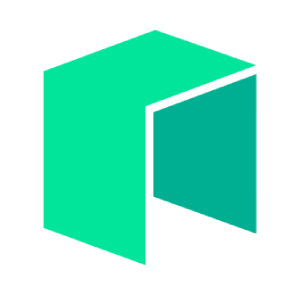
NEO
NEO Price Converter
NEO Information
NEO Markets
NEO Supported Platforms
| ENEO | ERC20 | NRG | 0x2464dD0E7eeCA2b880ECF15C7AB3A81790e0aD4C | 2021-03-03 |
About NEO
Neo is an open-source blockchain platform launched in 2014 under the name Antshares by Da Hongfei and Erik Zhang. It was rebranded to Neo in 2017. The platform is designed to support what it refers to as a "smart economy" by integrating digital assets, digital identity, and smart contracts. It uses a dual-token system comprising NEO and GAS.
Neo operates using the Delegated Byzantine Fault Tolerance (dBFT) consensus mechanism, which enables fast transaction finality and supports decentralised applications with higher throughput requirements.
Key Features:
Smart Contracts (NeoContract): Neo’s smart contract system allows developers to use common programming languages such as C#, Java, Go, Python, and TypeScript. Smart contracts are executed within the NeoVM (Neo Virtual Machine), which is designed to be lightweight and scalable.
NeoFS: NeoFS is a decentralised file storage network with permission controls based on wallet addresses. Data is stored as objects in containers, which define placement policies and access rights. Access to stored content is managed via session tokens or bearer tokens.
Neo Name Service (NeoNS): NeoNS is a distributed naming system that maps human-readable domain names (e.g.
alice.neo) to resources such as wallet addresses, NeoFS links, and IP addresses. It supports hierarchical domains (e.g.shop.alice.neo) and top-level domains are administered by the Neo Committee.Neo Oracle Service: Neo’s Oracle system allows smart contracts to request and receive data from off-chain sources. It uses a commit-reveal scheme to prevent data manipulation and supports requests via HTTPS and NeoFS. Oracle requests cost 0.5 GAS, with additional fees for callback functions.
Dual-Token Model:
- NEO: A governance token used to vote on proposals, elect Neo Committee members, and influence network changes. NEO has a fixed supply of 100 million and is indivisible.
- GAS: A utility token used to pay for network resources such as transaction fees and smart contract execution. GAS is divisible and generated with each new block, distributed to NEO holders.
The NEO token supports governance and ecosystem participation on the Neo blockchain. Key uses include:
Governance: NEO holders vote for the Neo Committee, which is responsible for maintaining consensus nodes and deciding on blockchain parameters and upgrades.
Asset Tokenisation: Neo enables the creation and management of tokenised physical and digital assets. Ownership and transfers are recorded on-chain.
Decentralised Applications (dApps): The platform supports the development of dApps in areas such as decentralised finance (DeFi), storage, and cross-chain services.
Decentralised Storage: NeoFS offers file storage with permission controls, suitable for use cases such as content delivery and enterprise data management.
Naming Services: NeoNS provides readable domain names for wallets and resources, improving usability.
Oracle Access: Smart contracts on Neo can retrieve off-chain data using the Oracle service, enabling functions like market data access or API integration.
Cross-Chain Interactions: NeoX facilitates communication between Neo and other blockchains, supporting asset and contract interoperability.
Transaction on Neo Legacy
Users send a transfer transaction to a migration address:- Mainnet:
ANeo2toNeo3MigrationAddressxwPB2Hz - Testnet:
AJ36ZCpMhiHYMdMAUaP7i1i9pJz4jMdiQV
The destination N3 address must be included in the Remark14 field.
- Mainnet:
Requirements
- Free migration for transfers of ≥10 NEO or ≥20 GAS
- Smaller amounts incur an extra fee of 1 GAS
- Each transaction must only include one type of asset
Processing
Valid transactions are processed within one business day. Assets are credited to the specified N3 address.